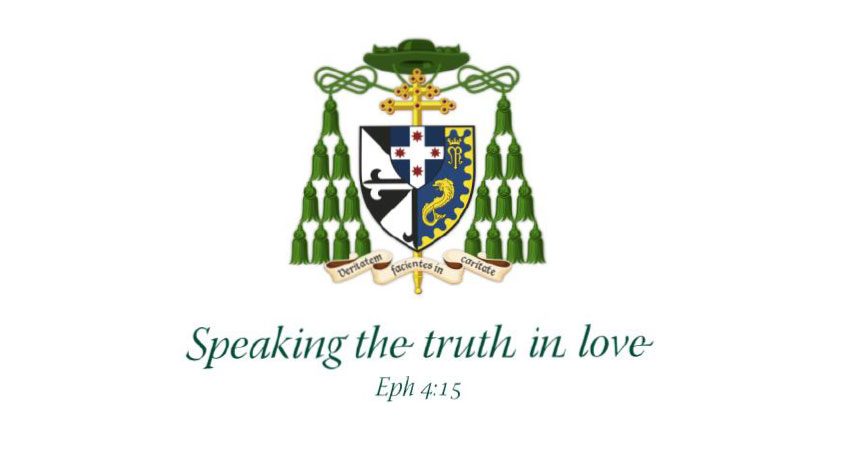Statement on Sydney Archdiocese response to Modern Slavery, Cathedral House, Sydney

STATEMENT ON THE RESPONSE OF THE CATHOLIC ARCHDIOCESE OF SYDNEY TO MODERN SLAVERY
Cathedral House, Sydney, 8 February 2018
I would like to begin by acknowledging the efforts of the Archdiocesan Anti-Slavery Taskforce, especially John McCarthy QC and Katherine Moloney, who have worked tirelessly to complete the report you have received today. This report details a number of recommendations on how the Archdiocese of Sydney and its various agencies can help to eradicate this blight on our modern society. I would like to recognise also the collaboration of various agencies, including Sydney Catholic Schools, CatholicCare Sydney, the Australian Catholic University, Australian Catholic Religious Against Trafficking in Humans, St. Vincent’s Health Australia, and the Archdiocesan Chancery itself. Many other agencies and individuals have also contributed to the work of the Taskforce. This is a testament to the resolve of the Church in Sydney and beyond not to pay mere lip-service to this issue, but to engage in real action for real change.
I thank the Taskforce for its well-reasoned recommendations. In practical terms, I today announce the commitment of the Church in Sydney:
- To seek to slavery-proof all procurement by the Archdiocese of Sydney through implementing the Australian Model of supply chain regulation (see Recommendation 1).
- To develop guidelines for all purchasing of goods and services for parishes and Church agencies (see Recommendation 2).
- To equip the lay faithful to make ethical purchasing decisions consistent with the Archdiocese’s anti-slavery supply chain regime (see Recommendation 2).
- To introduce anti-slavery education initiatives in our schools, parishes, universities, and Church agencies (see Recommendations 3 and 4).
- To develop an anti-slavery media and communications strategy (see Recommendation 5).
- To investigate the provision of needs-based services for survivors of modern slavery in Australia (see Recommendation 6).
- To seek to influence decision-makers in Catholic dioceses and religious institutes, education, health and aged care, welfare and finance, to adopt the same principles (see Recommendation 7).
- To lobby civic leaders, leaders of other churches and faiths, leaders of business and the wider community to join this campaign (see Recommendation 7).
- To explore other measures both Church and state might take in this area, as outlined in the Taskforce report (see Recommendations 8-10). I’m pleased that so many other organisations have already expressed their desire to work towards a national approach to eradicating modern slavery.
Finally, I encourage everyone in the Church and community to join with us on this issue. I repeat that the curse of modern slavery cries out to us as individuals and communities, and that we must choose whether we will pass by on the other side like the Priest and Levite, or stop and help like the Good Samaritan. It has often been said the only thing necessary for the triumph of evil is that good men do nothing; to this we might add: the only thing necessary for the triumph of good is that good people do what is right under grace. In twenty years, when as a global community we look back on the progress that has been made on this issue, will people ask ‘where was Australia?’, or will they say ‘Australia saw and acted’?
Most Rev. Anthony Fisher OP, DD BA LLB BTheol DPhil
Archbishop of Sydney

